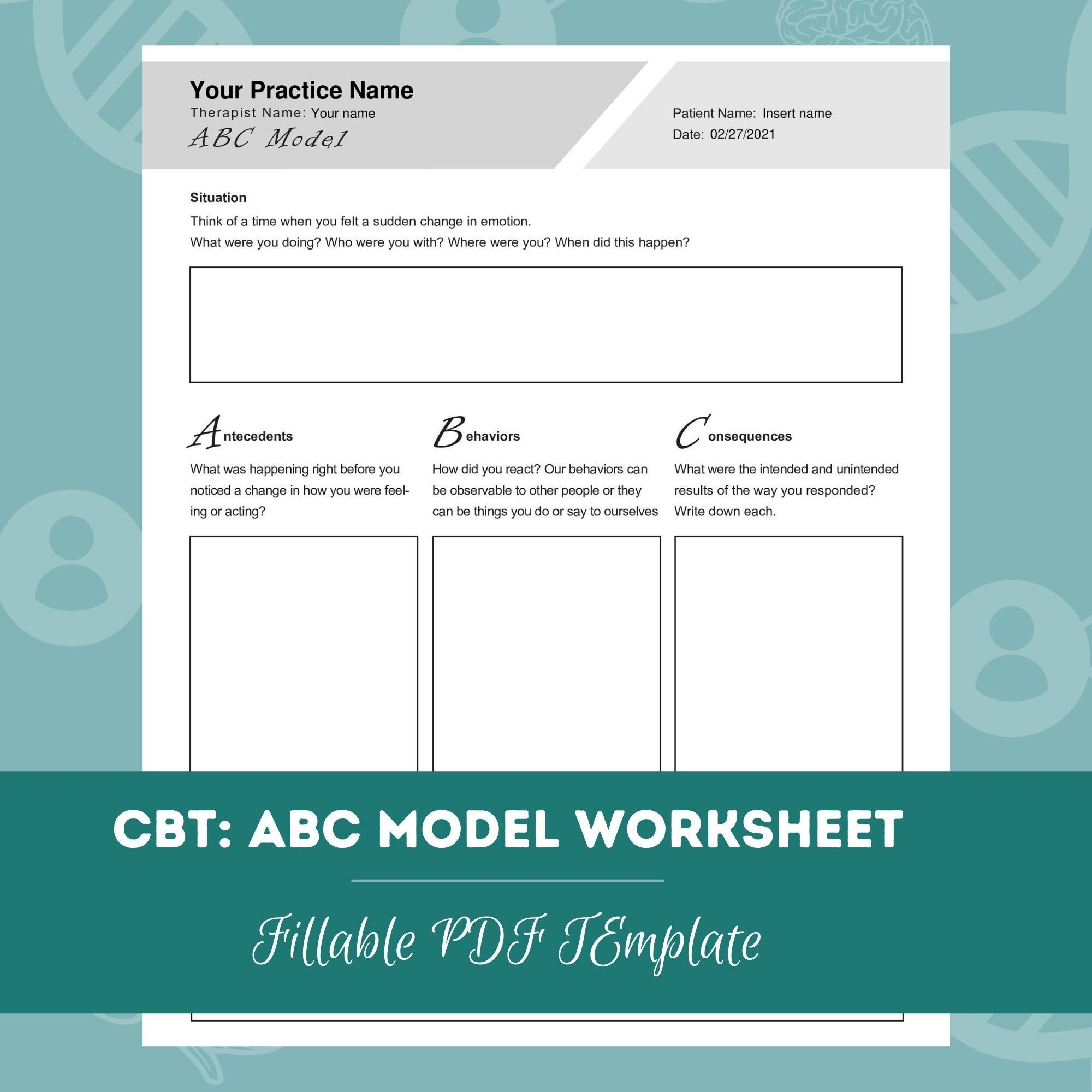Cognitive Behavioral Therapy (CBT) is a widely used therapeutic approach that focuses on identifying and changing negative thought patterns and behaviors. One of the key tools used in CBT is the ABC worksheet, which helps individuals understand the connection between their thoughts, emotions, and actions.
By breaking down a situation into its ABC components, individuals can gain insight into how their thoughts influence their feelings and behaviors. This awareness is crucial for developing healthier coping mechanisms and improving overall well-being.
The CBT ABC Worksheet
The ABC worksheet is a simple yet powerful tool that helps individuals track and analyze their thoughts, emotions, and behaviors in response to a specific situation. The worksheet is divided into three columns: A (Activating Event), B (Beliefs), and C (Consequences).
In the A column, individuals are encouraged to identify the specific event or situation that triggered their emotional response. This could be anything from a stressful work meeting to a disagreement with a loved one.
The B column is where individuals record their beliefs or thoughts about the activating event. This is where cognitive distortions, such as black-and-white thinking or catastrophizing, often come to light. By identifying and challenging these negative beliefs, individuals can begin to shift their perspective.
Finally, in the C column, individuals document the emotional and behavioral consequences of their thoughts. This step helps individuals recognize the link between their thoughts and their feelings, as well as the impact these emotions have on their actions.
By completing the ABC worksheet regularly, individuals can start to identify patterns in their thinking and behavior, as well as develop more balanced and rational responses to challenging situations.
In conclusion, the CBT ABC worksheet is a valuable tool for promoting self-awareness and fostering positive change. By breaking down complex emotional responses into manageable components, individuals can gain a deeper understanding of their thought patterns and learn to cultivate more adaptive coping strategies. With practice and persistence, the ABC worksheet can help individuals navigate difficult situations with greater clarity and resilience.
